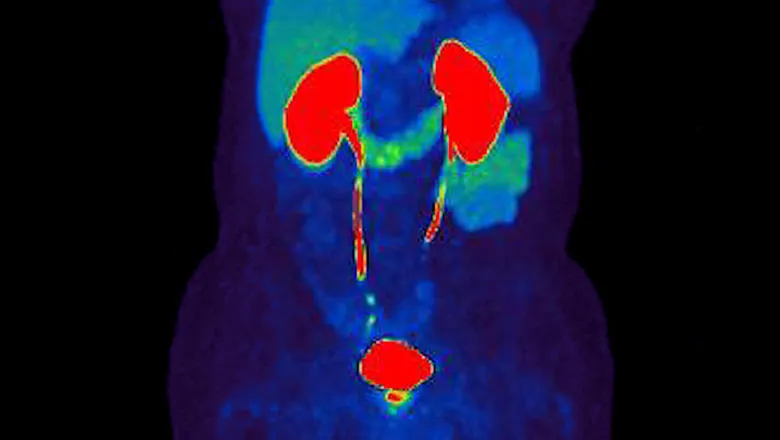We are proud to be the first centre to have scanned a patient with this radiopharmaceutical. The image quality proved to be exceptionally good and the preparation method allows greater flexibility for scanning of several patients.
Prof Gary Cook, Professor in Molecular Imaging
15 May 2023
First PET Scan using new tracer for prostate cancer diagnosis
For the first time in the UK, patients have been scanned in the King's College London & Guy's and St Thomas' PET Centre using F18-DCFPyl, a new Prostate-Specific Membrane Antigen (PSMA) PET tracer for the detection of prostate cancer.

In recent years, PSMA PET has become the primary modality for staging high-risk prostate cancer or detecting disease recurrence. This has been made possible by the introduction of specific tracers based on PSMA’s such as Ga68-PSMA.
Ga68-PSMA can only be produced in small batches and requires complex logistics for production. There is also competition for the manufacture with other 68Ga-based tracers, creating a possible conflict of demand in particularly busy periods.
The tracer, F18-DCFPyl has recently become available in London and has shown to be a valid alternative prostate cancer tracer with a strong evidence base.
The KCL & GSTT PET Centre is a referral centre in the UK for this specific application, thanks to the availability of PSMA tracers through GSTT radiopharmacy and the close collaboration with prostate cancer uro-oncology and surgical teams.
We are delighted to have initiated this new efficient and high-quality scanning methodology, thanks to a multi-disciplinary collaboration between clinical, academic and scientific staff at King’s College London and Guy’s and St Thomas’, with excellent support from industry partners.
Dr. Sugama Chicklore, PET Clinical Lead
KCL & GSTT are planning to work on a technology transfer in collaboration with Industry, enabling internal production of F18-DCFPyl in the Positron Emitting Radiopharmecutical Laboratory (PERL) at St Thomas’. This will guarantee a greater availability of the tracer, allowing expansion of the prostate cancer PET service.


